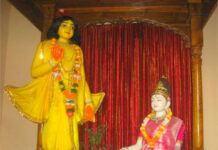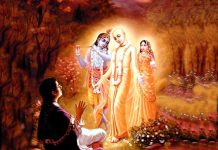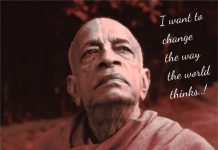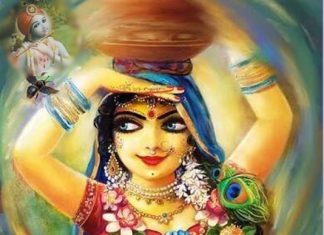If you noticed, during the last few years a good number of scandals have come to light in India. There have been several revelations by, starting from ordinary citizens to renowned authors, social leaders to political leaders, and lately, by ministers and judges. This brings up a number of questions- how many scandals are yet to be disclosed? Is it worth discussing about them when the authorities who are supposed to take actions are turning a blind eye? Are the whistle-blowers safe under the existing laws? Is it really the media that controls all this, as often blamed by politicians, or is it the politicians themselves?
Let’s look at some recent examples.
Example # 1: Justice Markandey Katju, formerly a Judge of the Supreme Court of India, and currently the chairman of the Press Council, has leveled allegations that question the integrity of the higher judiciary.  “There was an Additional Judge of the Madras High Court against whom there were several allegations of corruption. He had been directly appointed as a District Judge in Tamil Nadu, and during his career as District Judge there were as many as eight adverse entries against him recorded by various portfolio Judges of the Madras High Court. But one Acting Chief Justice of Madras High Court, by a single stroke of his pen, deleted all those eight adverse entries, and consequently he became an Additional Judge of the High Court, and he was on that post when I came as Chief Justice of Madras High Court in November 2004.” And “That Judge had the solid support of a very important political leader of Tamil Nadu. I was told that this was because while a District Judge he granted bail to that political leader.” FirstPost quoted him.
“There was an Additional Judge of the Madras High Court against whom there were several allegations of corruption. He had been directly appointed as a District Judge in Tamil Nadu, and during his career as District Judge there were as many as eight adverse entries against him recorded by various portfolio Judges of the Madras High Court. But one Acting Chief Justice of Madras High Court, by a single stroke of his pen, deleted all those eight adverse entries, and consequently he became an Additional Judge of the High Court, and he was on that post when I came as Chief Justice of Madras High Court in November 2004.” And “That Judge had the solid support of a very important political leader of Tamil Nadu. I was told that this was because while a District Judge he granted bail to that political leader.” FirstPost quoted him.
Now, I do not wish to judge if what Mr. Katju said is true or not as, after all, he also is a fallible, mortal being with all the four fundamental defects mentioned in the scriptures. Srila Prabhupada writes in his purport to the first verse of Sri Isopanisad:
“A living being who lives in the mundane world has four defects: (1) he is certain to commit mistakes; (2) he is subject to illusion; (3) he has a propensity to cheat others; and (4) his senses are imperfect. No one with these four imperfections can deliver perfect knowledge. The Vedas are not produced by such an imperfect creature.”
Interestingly, as if to prove this, what Mr. Katju wrote in his blog regarding the history of ancient India, where he calls certain descriptions in Ramayana and Mahabharata imaginary, shows his compatibility with one or more of the above-mentioned four fundamental defects. If a child cannot understand how a ballistic missile can precisely hit its target or how a robotic hand millions of miles away can carry out a mind boggling laser operation, just by a mere voice command, it does not mean that such technologies do not exist. Sorry for the distrcation but I can’t resist myself saying that what he says only shows how limited his intelligence is. Nonetheless, I admire his revelations, albeit late, regarding the corrupt nature of Indian political system and its influence over the judiciary.
 Example # 2: We see the current Chief Justice of India (CJI), RM Lodha, vow not to allow the independence of the judiciary to be compromised in any way. He has expressed his concern over a “concerted misleading campaign” aimed at “defaming the judiciary” and has said, “For God’s sake, do not shake the people’s confidence in the judiciary. If there is a concerted campaign to bring judiciary to disrepute and defame it, then it is a big disservice to the nation.” He goes on to say, “Everyone says collegium system has failed. I was among the first batch of judges selected under the collegium system. Justice RF Nariman is the last batch to be selected through the collegium system. If the system has failed, then the products have also failed.”
Example # 2: We see the current Chief Justice of India (CJI), RM Lodha, vow not to allow the independence of the judiciary to be compromised in any way. He has expressed his concern over a “concerted misleading campaign” aimed at “defaming the judiciary” and has said, “For God’s sake, do not shake the people’s confidence in the judiciary. If there is a concerted campaign to bring judiciary to disrepute and defame it, then it is a big disservice to the nation.” He goes on to say, “Everyone says collegium system has failed. I was among the first batch of judges selected under the collegium system. Justice RF Nariman is the last batch to be selected through the collegium system. If the system has failed, then the products have also failed.”
There is no need to blame the system. A system is always made of people. It is the people, all or a few of them, who fail or pass a system. We don’t want to throw out the baby with the bath water.
Example # 3: Recently, in a bold statement, Justice Dave has suggested that texts such as Mahabharat and Bhagavad Gita should be introduced in schools. “Somebody who is very secular… so called secular will not agree… Had I been the dictator of India, I would have introduced Gita and Mahabharata in class one. That is the way you learn how to live life. I am sorry if somebody says I am secular or I am not secular. But if there is something good, we have to get it from anywhere,” He said.
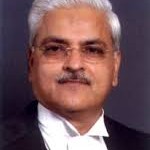 Knowing well that India is filled with pseudo secularists, Justice Dave has appropriately pointed out that so-called secular will not agree with him. I read Justice Katju quickly saying it is inappropriate for Justice Dave to say what he did. Why inappropriate? If we can study 2000 years old history, quite often written and re-written by unscrupulous people, who twisted it to suit their agendas, why can’t we study 5000 years old history? Unfortunately, most Indians are still living under the colonial influence and think that Mahabharat and Ramayan like historical texts are mere mythology. To think that there was no advance civilization before a few thousand years is a result of poor fund of knowledge.
Knowing well that India is filled with pseudo secularists, Justice Dave has appropriately pointed out that so-called secular will not agree with him. I read Justice Katju quickly saying it is inappropriate for Justice Dave to say what he did. Why inappropriate? If we can study 2000 years old history, quite often written and re-written by unscrupulous people, who twisted it to suit their agendas, why can’t we study 5000 years old history? Unfortunately, most Indians are still living under the colonial influence and think that Mahabharat and Ramayan like historical texts are mere mythology. To think that there was no advance civilization before a few thousand years is a result of poor fund of knowledge.
So, we see one judge, who is no more a judge, accusing the judiciary of corruption, and another judge, who is now the chief justice of the Supreme Court of India, defending the system. And yet another judge has a completely different approach to the situation. Without referring to the judiciary, he says that children should be taught to live life from historical books of ancient India, and I believe he has made this statement on purpose.
Ideally, in a judiciary system, politicians and influential leaders of the society should not have easy access to the judiciary. If a politician can easily get in touch with the chief justice and get a judge’s term extended or made permanent, it only questions the judiciary’s claims of enjoying independence. The reality, however, is different. It seems that for a judge, everything is great in the judiciary so far he is a part of it. Hardly anyone speaks up while he is on the job. If the silence is due to their allegiance towards their chair or the fear of losing the chair, is a question. There isn’t much use of having a judiciary that is controlled by others from behind the scenes. Details of any meeting between politicians and the judiciary should be available publicly, and the results should be available to all interested parties. Anything beyond this automatically deems suspicious.
Although the examples cited above are from India, the trend of influencing the judiciary by politicians, especially by the ruling parties, is rampant all over the world, in almost all countries and in all organizations. This seriously cripples people’s faith in the judiciary, and when that happens, it is natural to expect public agitations, revolutions, or even terrorism. We hear people like Justice Katju coming up with disclosures after his retirement. We hear an intern accusing a supreme court judge of sexual harassment after his retirement. We hear things after the damage is done. This is worrisome. Sure, it is better to speak up the truth later than trying to keep it hidden forever, but the fact that it remains hidden for years shows there is a system failure. Truth, by nature, is self illuminant, and no amount of cover up can hide it. A healthy judiciary is that which can uphold and establish the truth under all circumstances.
If the question is, can this be achieved under the present scenario? The answer is No. But if the question is, can this be achieved at all? My answer is Yes. Let me say why and how.
History shows that the people in the previous ages, up to King Parikshit, the grandson of King Yudhisthir, were more prosperous and peaceful than they are today. The reason is, the society was run following the social system called Varnashram dharma, the system given by God, or Krishna Himself. Lord Krishna says in Bhagavad Gita (4.13):
“According to the three modes of material nature and the work ascribed to them, the four divisions of human society were created by Me. And, although I am the creator of this system, you should know that I am yet the non-doer, being unchangeable” (B.G. 4.13).
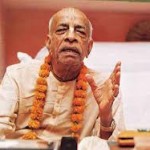 Srila Prabhupada, the founder-acharya of the International Society for Krishna Consciousness, or ISKCON, explains the four classes as, 1) The intelligent class of men, technically called brahamanas due to their being situated in the mode of goodness; 2) The administrative class, technically called ksatriyas due to their being situated in the mode of passion; 3) The mercantile class of men, called the vaisyas, who are situated in the mixed mode of passion and ignorance; and 4) The sudras, or the laborer class, who are situated in the mode of ignorance. This is not the so called Indian caste system that has been misunderstood and mispresented by western scholars, and misused in the past by the upper class Indians. In fact, not only India but any country or culture has these four classes, namely, intelligent class, administrative class, mercantile class, and laborer class, regardless of how they call them.
Srila Prabhupada, the founder-acharya of the International Society for Krishna Consciousness, or ISKCON, explains the four classes as, 1) The intelligent class of men, technically called brahamanas due to their being situated in the mode of goodness; 2) The administrative class, technically called ksatriyas due to their being situated in the mode of passion; 3) The mercantile class of men, called the vaisyas, who are situated in the mixed mode of passion and ignorance; and 4) The sudras, or the laborer class, who are situated in the mode of ignorance. This is not the so called Indian caste system that has been misunderstood and mispresented by western scholars, and misused in the past by the upper class Indians. In fact, not only India but any country or culture has these four classes, namely, intelligent class, administrative class, mercantile class, and laborer class, regardless of how they call them.
A healthy judiciary, by its nature, comes under the brahmana category. Brahmanas are those who are not financially dependent on others. They don’t have salaries nor do they demand it. By distributing knowledge they inspire others to thankfully give them charity. It is important to note that a qualified brahmana does not come under any mundane obligation by accepting such charity although he is not thankless either. Apart from giving knowledge, upholding the highest standard of morality and integrity is a brahmana’s duty towards the society. Because he is financially independent and fully dependent on the Supreme Lord, he is, without hesitation, able to stand for the truth. Judiciary in the ancient India was made of such brahmanas who were consulted by the kings to deliver justice. They were able to not only guide, but also chastise even the kings, and the kings, knowing the importance of such brahmanas, would accept such chastisements as their mercy upon them.
Unfortunately, these days the judiciary is made of people who are paid by the government, the administrative class. Besides, the government, which is largely made of shudra quality people, is run under the influence of mercantile class of people. That is to say that, effectively, the judiciary, which is supposed to be made of the brahmana class of people described above, is working under the rule of the mercantile class. Thus, everything is topsy-turvy. How can, under such a scenario, the judiciary, even if willing, deliver justice?
 However, this does not give the judiciary an excuse to run away from its responsibility, fall victim to the bribe-culture, and succumb to political pressure. If someone wants to sit on a judge’s seat, he must have the courage and character to stand against all evil forces. Such courage and character can only be acquired by honoring and practicing spiritual values. A person without spiritual insight is no better than an animal. These values are universal and go beyond one’s religious faith. It a misfortune of India that our leaders, except a few, are unaware of the significance of these values.
However, this does not give the judiciary an excuse to run away from its responsibility, fall victim to the bribe-culture, and succumb to political pressure. If someone wants to sit on a judge’s seat, he must have the courage and character to stand against all evil forces. Such courage and character can only be acquired by honoring and practicing spiritual values. A person without spiritual insight is no better than an animal. These values are universal and go beyond one’s religious faith. It a misfortune of India that our leaders, except a few, are unaware of the significance of these values.
Like it or not, there is a dire need to educate, not only the mass but, more importantly, also the leaders, including the judges, in the science and philosophy of Bhagavad Gita. It is not a Hindu book as presented by the less intelligent class of people, and the glaring proof is, there is no mention of the word “Hindu” by the speaker, Lord Krishna, in the entire book. People who call it a Hindu book only show their ignorance, and the pseudo secularists coupled with selfish politicians are making noise for no reason when a leader talks about Bhagavad Gita. It is high time we understand the actual teachings of this extra ordinary message of the Godhead and get inspired to live by the eternal knowledge given therein, the knowledge that goes much beyond a healthy society, it is definitely possible to bring back the old golden days. Hare Krishna.


